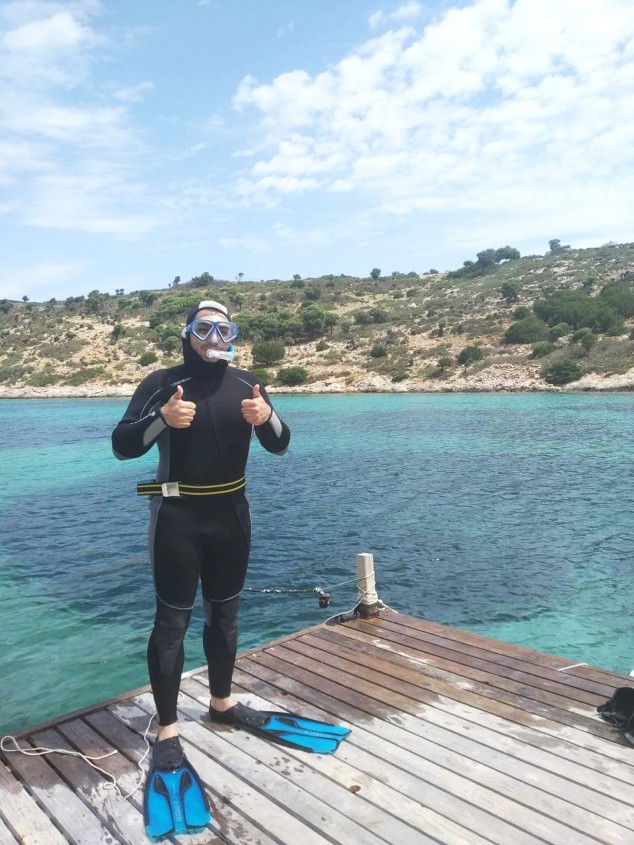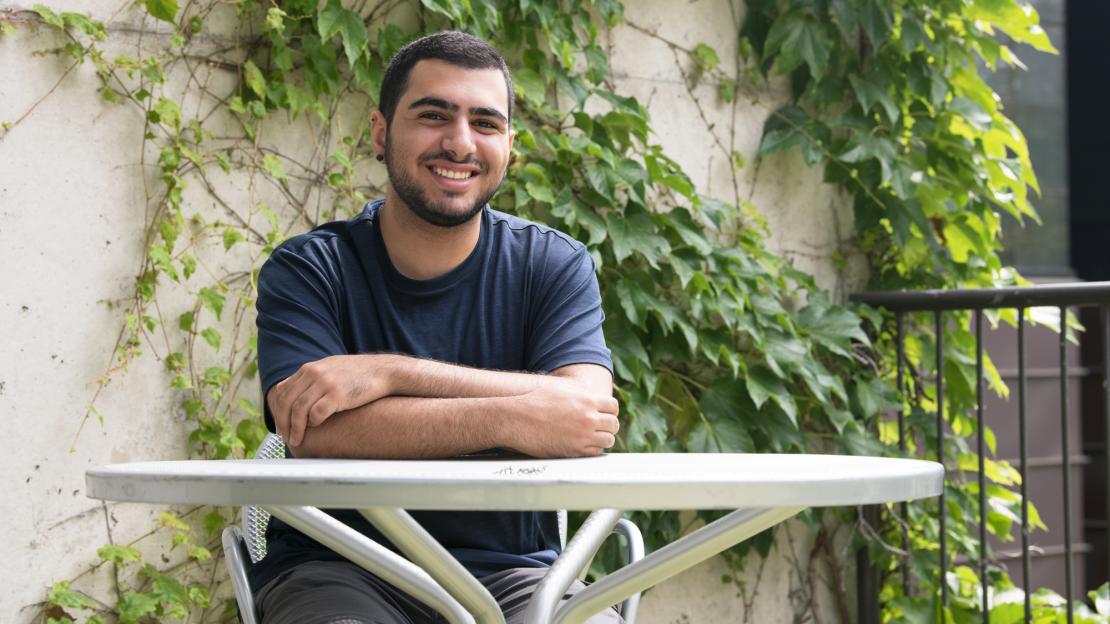When local fishermen on a small Greek island asked Nash Abdulhamid and his team for help on bettering their fishing practices, he knew their work was making a difference.
“We knew the research we were doing had some influence, but we didn’t really get to see the influence on what we were doing,” says Abdulhamid, a fourth-year neuroscience and conservation biology student.
 This was a big moment, considering the environmental organization he was working for runs on the principles of co-operation with local communities, while defending and protecting marine life and environment.
This was a big moment, considering the environmental organization he was working for runs on the principles of co-operation with local communities, while defending and protecting marine life and environment.
With the help of the Academic Travel Fund, Abdulhamid spent the months of May and June on the island of Leipsoi, studying coastal biodiversity, shipping risk management and marine conservation with the Archipelagos Institute of Marine Conservation.
The institute is a non-governmental organization dedicated to the conservation and study of Greek islands, the Aegean Sea and the northeastern Mediterranean.
During his internship, Abdulhamid spent most of his days on a replanting project. The hour-long trek to their research base, which he laughs about now, involved getting up early to beat the heat and carrying diving gear up a hill (the team were eventually provided a car).
The long walk aside, the project involved finding viable ways to replant a native seagrass. Abdulhamid explains the plant has a high ecological value, and the seagrass stores C02 up to 40 times faster than forests. While it has a long growth period, the team focused on revitalizing and replanting some of the weakened plants.
“As an NGO with limited resources, we were looking at perfecting a protocol so that any other NGO in the area dealing with seagrass, like Australia or Hawaii, could reproduce the same protocol and get the same results.”
When he was not out at sea, Abdulhamid was the project lead on a shipping risk analysis project, and used an automatic identification system (AIS) mapping software to flag areas that had higher risks for collisions or spills in the Aegean Sea.
Abdulhamid explains that unlike surrounding waterways, the Aegean Sea does not have regulated shipping routes. Ships must navigate through small islands, leaving them vulnerable to environmental damage. His research suggested that about 43 per cent of ships carry flags of convenience –– which allow ship-owners to escape financial costs and regulations from their countries of origin.
“In the event of any spill or collision, it’s that much harder to trace them to the country responsible,” Abdulhamid explains. “It ends up being the responsibility of the Greek government. My project was to prevent things from going wrong.”
Fueling a passion for environmentalism
Prior to his time abroad, Abdulhamid assisted Kenneth Welch, associate professor in the Department of Biological Sciences, on his research on hummingbirds. Three years after deciding he wanted a career in medical research, he made the switch to conservation biology.
But courses were heavily theory-based and Abdulhamid was searching for opportunities to apply his knowledge with experiential learning. His time abroad further drove his interest in finding other hands-on opportunities in Toronto.
“You get to do something incredible and this is something I wouldn’t have been able to do without the Academic Travel Fund,” says Abdulhamid, who will study the role of zoos in conservation and how animal behaviour changes while in captivity this fall.
“It was an opportunity to do something I wouldn’t have been able to do and find something that I’m passionate about.”
